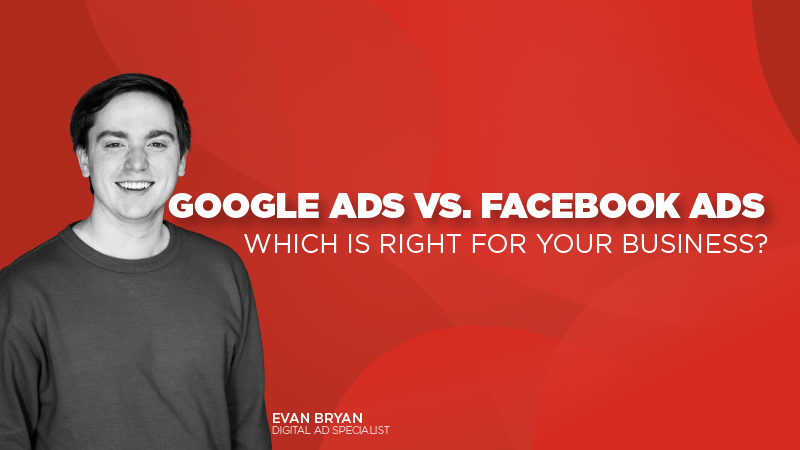MC Ticket
our ideas
Google Ads vs. Facebook Ads: Which is Right for Your Business?

Choosing the right advertising platform is a big deal for any business. Google Ads and Facebook Ads can both help you reach your target audience, but knowing their unique strengths and how they fit your goals is key. So what’s right for your business, Google Ads vs. Facebook Ads?
Google Ads: Harnessing Intent
Google Ads works on a pay-per-click (PPC) model, targeting users based on what they’re searching for. When someone looks up keywords related to your business, your ad pops up. This is great for grabbing potential customers who are actively looking for what you offer.
Users on Google are searching with a purpose, which often leads to higher conversion rates. Google handles over 3.5 billion searches a day, giving you a huge audience. You also get detailed analytics to track and optimize your ad performance. Plus, Google Ads come in various formats like search ads, display ads, shopping ads, and YouTube video ads.
The downside? Competition can be tough, especially for popular keywords, which can drive up costs. Also, writing effective ad copy that matches search intent takes some skill.
Facebook Ads: Leveraging Social Engagement
Facebook Ads shine when it comes to targeting based on user behavior, interests, and demographics. This makes it perfect for building brand awareness and engaging with potential customers in a social, interactive setting.
Facebook’s targeting options let you reach users based on things like interests, behaviors, age, gender, and location. The platform offers different ad formats, such as image ads, video ads, carousel ads, and slideshow ads, which are great for creating visually appealing content. Plus, Facebook Ads can be more budget-friendly than Google Ads, making them accessible for smaller businesses.
Facebook’s social nature encourages likes, shares, and comments, helping to create a community around your brand. However, people on Facebook aren’t always in a buying mood when they’re scrolling, so immediate conversions might not be as common. But it’s fantastic for sparking interest and nurturing leads over time.
Choosing the Right Platform
Deciding between Google Ads and Facebook Ads depends on your business goals, who you’re trying to reach, and your budget.
If you’re looking to capture high-intent leads and drive quick conversions, Google Ads might be your best bet. It’s especially effective in niche markets with high search volume and manageable competition. But if your aim is to build brand awareness, engage with potential customers, and create a loyal community, Facebook Ads could be more up your alley. Facebook is excellent for storytelling and making emotional connections with your audience.
Combining Strategies
For many businesses, using both platforms together can work wonders. Google Ads can help you capture users actively searching for your products, while Facebook Ads can retarget these users with engaging content to nurture them further down the sales funnel. This approach allows you to maximize your reach and effectiveness by addressing different stages of the customer journey on the most suitable platforms.
Wrapping Up
Google Ads and Facebook Ads each have their unique advantages. Understanding the strengths and limitations of each can help you make a decision that fits your marketing strategy. Whether you pick one or use both, the key is to keep analyzing and optimizing your campaigns to get the best results. This way, you can effectively reach your target audience, drive conversions, and build lasting brand loyalty.